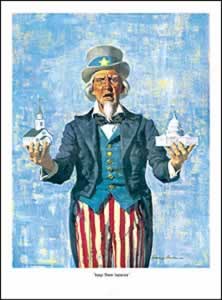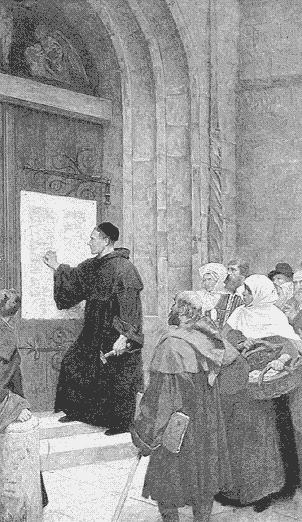Pope Benedict XVI is underlining the need for more centers to study and diffuse the Church’s social doctrine. He stated this in a message sent to Cardinal Peter Turkson, president of the Pontifical Council for Justice in Peace, in a two-day meeting in Rome.
“In order to globalize the social doctrine of the Church,” he said, “it seems opportune to multiply the centres and institutes that are dedicated to its study, diffusion and realization throughout the world.”
Benedict is blunt in that his object is to make Catholic social teaching the foundation of all societies through institutions of influence. Through many different channels, the papacy seeks to reform the United Nations Organization, economic institutions, international finance, social organizations and educaation institutions so that Catholic teaching and principles pervade throughout the world. In Caritas in Veritate Benedict said that there is an “urgent need of a true world political authority.” Obviously, the pope is aiming to be that authority. (See Daniel 7:7, 8, 19, 20 and Revelation 18:7).
Benedict XVI the “construction of a social order that at last conforms to the moral order…” In plain language; the moral order that the Holy See would define.
The encyclical further advocates for the free movement of migrants. This strategy allows Catholic migrants to influence those host nations with thier Catholic social and moral teaching. With human numbers on her side, the Vatican fast gaining ground for the dissemination of her doctrines.
Caritas in Veritate also speaks about the globalisation crisis, and the encyclical’s solution is to allow for the “large-scale redistribution of wealth on a world-wide scale.” Benedict, at a World day event for migrants on 26th October, said “All have the same right to enjoy the goods of the earth whose destination is universal.” Redistribution of wealth takes money from rich countries and gives it to poor countries, and makes rich countries poorer. In the process, the Vatican can influence the process through influence on international financial institutions like the International Monetary Fund.
Benedict XVI has called on the Pontifical Council to “dedicate itself…to the search for more adequate ways to convey the contents of the social doctrine.” Benedict is trying to target “the great centres of formation of world thought,” such as the press, universities, economic and social institutions of the world.
“She is silently growing into power. Her doctrines are exerting their influence in legislative halls, in the churches, and in the hearts of men.” “History testifies of her artful and persistent efforts to insinuate herself into the affairs of nations; and having gained a foothold, to further her own aims, even at the ruin of princes and people.” Spirit of Prophecy, vol. 4, pg. 397; The Great Controversy, pg. 580.
skip to main |
skip to sidebar


"If ye keep my commandments, ye shall abide in my love; even as I have kept My Father's commandments and abide in His love." John 15:10.


“I see a very dark cloud on America’s horizon, and that dark cloud is coming from Rome.’’ - Charles Chiniquy (1809-1899), Fifty Years in the Church of Rome, The Wickliffe Press, Protestant Truth Society, Wickliffe Avenue, 104 Hendon Lane, Finchley, London, N3., 1885, p. 510.

"I have long been decided in opinion that a free government and the Roman Catholick religion can never exist together in any nation or Country." "Liberty and Popery cannot live together." - John Adams, 2nd President of the United States

"I do not like the late Resurrection of the Jesuits. They have a General, now in Russia, in correspondence with jesuits in the U.S. who are more numerous than everybody knows. Shall We not have Swarms of them here? In as many shapes and disguises as ever.... In the shape of printers, Editors, Writers, School masters, etc. If ever any Congregation of men could merit, eternal Perdition on Earth and in Hell... it is this Company of Loyola." - Thomas Jefferson, 2nd President of the United States

"It is my opinion that if the liberties of this country — the United States — are destroyed, it will be by the subtlety of the Roman Catholic Jesuit priests, for they are the most crafty, dangerous enemies to civil and religious liberty. They have instigated most of the wars in Europe."- General Marquis De Layfayette

"All worship of images and saints, is an abomination to God; it is idolatry, which is strictly forbidden in the Bible." - American lexicographer and statesman Noah Webster

"I hope that the last day is at the door. Things could not become worse than the Roman see makes it. It suppresses the commandments of God, it exalts its own commandments above God's. If this is not Antichrist, then some one else must tell what it is." - Luther's Reformatory Works," p. 280. Copenhagen: 1883.





"And the dragon was wroth with the woman, and went to make war with the remnant of her seed, which keep the commandments of God, and have the testimony of Jesus Christ." Revelation 12:17

His People will Stand Unmoved
In the midst of the time of trouble --trouble such as has not been since there was a nation-- His chosen ones will stand unmoved. Satan with all the hosts of evil cannot destroy the weakest of God's saints. Angels that excel in strength will protect them, and in their behalf Jehovah will reveal Himself as a "God of gods," able to save to the uttermost those who have put their trust in Him. PK 513
My YouTube Channels
Favorite Links
"If ye love Me, keep my commandments"

"If ye keep my commandments, ye shall abide in my love; even as I have kept My Father's commandments and abide in His love." John 15:10.
Till Heaven and Earth Pass
Think not that I am come to destroy the law or the prophets; I am not come to destroy, but to fulfill. - Matt. 5:17
For verily I say unto you, Till heaven and earth pass, one jot or one tittle shall in no wise pass from the law, till all be fulfilled. - Matt. 5:18
Whosoever therefore shall break one of these least commandments, and shall teach men so, he shall be called the least in the kingdom of heaven: but whosoever shall do and teach them, the same shall be called great in the kingdom of heaven. - Matt. 5:19
For verily I say unto you, Till heaven and earth pass, one jot or one tittle shall in no wise pass from the law, till all be fulfilled. - Matt. 5:18
Whosoever therefore shall break one of these least commandments, and shall teach men so, he shall be called the least in the kingdom of heaven: but whosoever shall do and teach them, the same shall be called great in the kingdom of heaven. - Matt. 5:19

President Lincoln's Prophecy

“I see a very dark cloud on America’s horizon, and that dark cloud is coming from Rome.’’ - Charles Chiniquy (1809-1899), Fifty Years in the Church of Rome, The Wickliffe Press, Protestant Truth Society, Wickliffe Avenue, 104 Hendon Lane, Finchley, London, N3., 1885, p. 510.
Adams on Liberty and Popery

"I have long been decided in opinion that a free government and the Roman Catholick religion can never exist together in any nation or Country." "Liberty and Popery cannot live together." - John Adams, 2nd President of the United States
Jefferson knew the Danger

"I do not like the late Resurrection of the Jesuits. They have a General, now in Russia, in correspondence with jesuits in the U.S. who are more numerous than everybody knows. Shall We not have Swarms of them here? In as many shapes and disguises as ever.... In the shape of printers, Editors, Writers, School masters, etc. If ever any Congregation of men could merit, eternal Perdition on Earth and in Hell... it is this Company of Loyola." - Thomas Jefferson, 2nd President of the United States
The French General's Prophecy

"It is my opinion that if the liberties of this country — the United States — are destroyed, it will be by the subtlety of the Roman Catholic Jesuit priests, for they are the most crafty, dangerous enemies to civil and religious liberty. They have instigated most of the wars in Europe."- General Marquis De Layfayette
Noah Webster on Idolatry

"All worship of images and saints, is an abomination to God; it is idolatry, which is strictly forbidden in the Bible." - American lexicographer and statesman Noah Webster
Luther Identified the Antichrist

"I hope that the last day is at the door. Things could not become worse than the Roman see makes it. It suppresses the commandments of God, it exalts its own commandments above God's. If this is not Antichrist, then some one else must tell what it is." - Luther's Reformatory Works," p. 280. Copenhagen: 1883.
The Number of a Man

No Fear but the Fear of God

Zealous, ardent, and devoted, knowing no fear but the fear of God, and acknowledging no foundation for religious faith but the Holy Scriptures, Luther was the man for his time; through him God accomplished a great work for the reformation of the church and the enlightenment of the world. When the papal bull reached Luther, he said: "I despise it, and resist it, as impious and false. . . . It is Christ himself who is condemned therein." "I glory in the prospect of suffering for the best of causes. Already I feel greater liberty; for I know now that the pope is antichrist, and that his throne is that of Satan himself."
Digital Books
John Wycliffe's Wisdom

Wycliffe the great reformer wrote: “Christ is truth, the Pope is the principle of falsehood. Christ lived in poverty, the Pope labours for worldly magnificence. Christ refused temporal dominion, the Pope seeks it.”
"Keep Them Separate"

Precious,Truth Filled Books
Martin Luther Stood Alone

To the reproaches of his enemies, who taunted him with the weakness of his cause, Luther answered: "Who knows if God has not chosen and called me to perform this needed work, and if these babblers ought not to fear that by despising me, they despise God himself? They say I am alone; no, for Jehovah is with me. In their sense, Moses was alone at the departure from Egypt; Elijah was alone in the reign of King Ahab; Isaiah was alone in Jerusalem; Ezekiel was alone in Babylon. Hear this, O Rome: God never selected as a prophet either the high priest or any great personage; but rather, he chose low and despised men, once even the shepherd Amos. In every age the saints have been compelled to rebuke kings, princes, recreant priests, and wise men at the peril of their lives." "I do not say that I also am a prophet; but I do say that they ought to fear precisely because I am alone, while on the side of the oppressor are numbers, caste, wealth, and mocking letters. Yes, I am alone; but I stand serene, because side by side with me is the Word of God; and with all their boasted numbers, this, the greatest of powers, is not with them."
A Precious, Truth-filled Book
BIBLE READINGS FOR THE HOME
There are 300 Scripture topics in question and answer form in this paperback book of 654 pages. Typically a question is asked and a Bible verse printed in response. Frequently there is a further explanatory note.

Read it ONLINE or, if you have a United States or Canadian post office address, Project Restore will be happy to send a complimentary copy of this book to you (limit = one copy per person). For your convenience, we have provided a request form that you can fill in and submit online, or print and mail to us.
Source: Project Restore
There are 300 Scripture topics in question and answer form in this paperback book of 654 pages. Typically a question is asked and a Bible verse printed in response. Frequently there is a further explanatory note.

Read it ONLINE or, if you have a United States or Canadian post office address, Project Restore will be happy to send a complimentary copy of this book to you (limit = one copy per person). For your convenience, we have provided a request form that you can fill in and submit online, or print and mail to us.
Source: Project Restore
Blog Archive
-
►
2014
(10)
- ► April 2014 (2)
- ► March 2014 (5)
- ► February 2014 (1)
- ► January 2014 (1)
-
►
2013
(6)
- ► November 2013 (2)
- ► March 2013 (1)
- ► February 2013 (1)
- ► January 2013 (1)
-
►
2012
(7)
- ► September 2012 (2)
- ► April 2012 (1)
- ► March 2012 (2)
- ► January 2012 (1)
-
►
2011
(48)
- ► December 2011 (7)
- ► November 2011 (4)
- ► October 2011 (5)
- ► September 2011 (4)
- ► August 2011 (4)
- ► April 2011 (4)
- ► March 2011 (2)
- ► January 2011 (6)
-
▼
2010
(406)
-
▼
December 2010
(10)
- Huckabee and Dershowitz Argue about the Sabbath
- Benedict XVI and WCC Leader Reaffirm Goals for Vis...
- Pope Benedict XVI Calls for Diffusion of Church’s ...
- Wikileaks Reveals Vatican Involvement with Global ...
- Catholic Power vs. American Freedom
- How the U.S. Government Guaranteed the Coming Food...
- Colombia and El Salvator Wonder After..
- Vatican to Promote Sunday Celebration Through Worl...
- UK Ordinariate Will Be Established in January
- Rowan Williams Meets with Pope Benedict XVI
- ► November 2010 (12)
- ► October 2010 (18)
- ► September 2010 (114)
- ► August 2010 (89)
- ► April 2010 (24)
- ► March 2010 (21)
- ► February 2010 (5)
- ► January 2010 (5)
-
▼
December 2010
(10)

0 comments:
Post a Comment